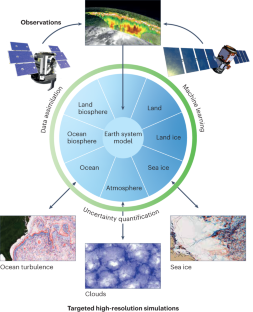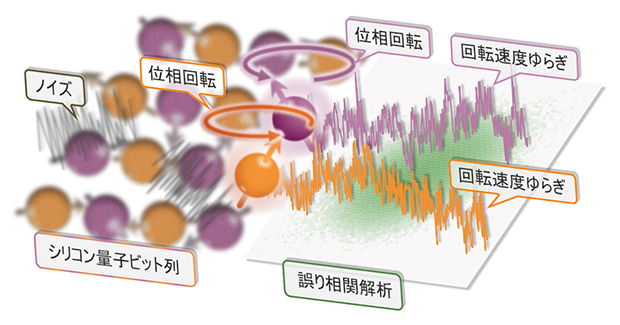2023-10-10 カリフォルニア工科大学(Caltech)
◆しかし、このプロジェクトは膨大な計算能力が必要で、発展途上国に資源が偏る可能性があると指摘されています。代わりに、機械学習を活用し、粗いモデルを改善し、不確実性を減少させる方法が提案されています。このアプローチは、気象予報の向上に成功したデータの利用と同様の成果を気候予測にもたらす可能性があります。
<関連情報>
- https://www.caltech.edu/about/news/artificial-intelligence-is-key-to-better-climate-models-say-researchers
- https://www.nature.com/articles/s41558-023-01769-3
AIとコンピューティングを活用し、気候モデリングと予測を前進させる
Harnessing AI and computing to advance climate modelling and prediction
Tapio Schneider,Swadhin Behera,Giulio Boccaletti,Clara Deser,Kerry Emanuel,Raffaele Ferrari,L. Ruby Leung,Ning Lin,Thomas Müller,Antonio Navarra,Ousmane Ndiaye,Andrew Stuart,Joseph Tribbia & Toshio Yamagata
Nature Climate Change Published:05 September 2023
DOI:https://doi.org/10.1038/s41558-023-01769-3

There are contrasting views on how to produce the accurate predictions that are needed to guide climate change adaptation. Here, we argue for harnessing artificial intelligence, building on domain-specific knowledge and generating ensembles of moderately high-resolution (10–50 km) climate simulations as anchors for detailed hazard models.
Adaptation planners, local decision makers and industries are demanding detailed assessments of climate risks1, which necessitate large ensembles of climate simulations2. However, climate models struggle to provide the needed granular predictions with quantified uncertainties. A step change in the accuracy and usability of climate predictions is needed.



